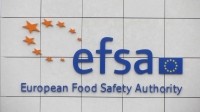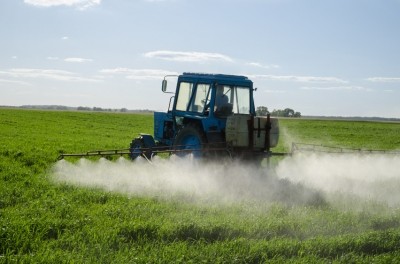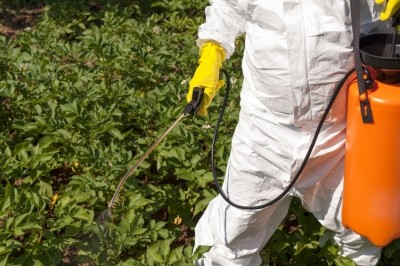Glyphosate is unlikely to cause cancer, says EFSA

The conclusion flies in the face of the International Agency of Research on Cancer (IARC), which earlier this year deemed glyphosate to be probably carcinogenic, leading to calls for the EU to legislate to ban the herbicide.
In the conclusion, EFSA suggests raising the acceptable acute reference dose for consumers to 0.5 mg/kg body weight per day, up from 0.3 mg. This is the amount that can be ingested in a short period of time, such as during a meal, without posing a health risk.
This means that a man weighing 80 kg could safely eat food containing up to 40 mg of glyphosate residue on it – the equivalent of eating 400 kg of fruit and vegetables a day, Monsanto is reported as saying.
According to Jose Tarazona, head of EFSA’s pesticides: “By introducing an acute reference dose we are further tightening the way potential risks from glyphosate will be assessed in the future. Regarding carcinogenicity, it is unlikely that this substance is carcinogenic,” he said.
Experts from all member states but one - Sweden - concluded that there was no evidence for causality between glyphosate exposure and cancer in humans.
Toxicologist and scientific advisor to the Swedish Chemicals Agency, Sten Flodstrom, who sat on EFSA's panel told FoodNavigator: "We believed there was a lot of sense in the IARC conclusion and that the EU's criteria for carcinogenic effects were met to the degree we considered glyphosate to be possibly carcinogenic in humans - probably in my opinion."
But Flodstrom nonetheless said that the increase from 0.3 mg to 0.5 mg was marginal and would probably not have an impact on public health.
Converging conclusions
EFSA attributed the difference in conclusion with IARC to the fact that it reviewed a number of studies not assessed by the WHO agency, a well as the fact that EFSA looked at glyphosate alone while IARC assessed its use in combination with other chemicals in glyphosate-based formulations.
Peter Melchett, policy director at UK organic group the Soil Association, said EFSA’s finding came as no surprise because of this.
“Although glyphosate is always used in combination with a range of other often toxic chemicals, and [these mixes] can be 1000 times more toxic than glyphosate acting on its own, the EFSA insists on looking at the impact of glyphosate alone. It is blindingly obvious that the WHO approach is right from the perspective of public safety, and that the EFSA approach simply serves the interests of the pesticide companies.
Meanwhile chemical officer of the Pesticide Action Network (PAN Europe), Hans Muilerman said that the opinion violates Europe’s precautionary principle by giving the advantage of doubt to industry instead of priority to protecting human health and the environment.
But the decision was welcomed by the Glyphosate Task Force which represents Monsanto and other users. Chairman Richard Garnett said the conclusion confirms previous evaluations by regulatory authorities around the world. “[These] have consistently concluded that the application of glyphosate poses no unacceptable risk to human health, animals or the environment”.
The findings will be used by the Commission to decide whether or not glyphosate should remain on the list of approved active substances. Member states will then be able to decide whether its use in pesticides should be authorised.
EFSA will use the new toxicological values in a review of maximum residue levels authorised in food which will be carried out with member states in 2016.
The European Chemicals Agency (EHCA) will also produce a report and could come to a different conclusion to EFSA.
Earlier this year the Soil Association launched a campaign ‘Not in Our Bread’ after tests carried out by the Department of Environment, Food and Rural Affairs, (DEFRA) revealed traces of glyphosate present in one third of samples.
Gordon Polson, director of the Federation of Bakers, told FoodNavigator at the time that the traces present in bread were so minuscule they would have no effect on human health.






















